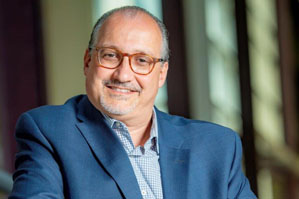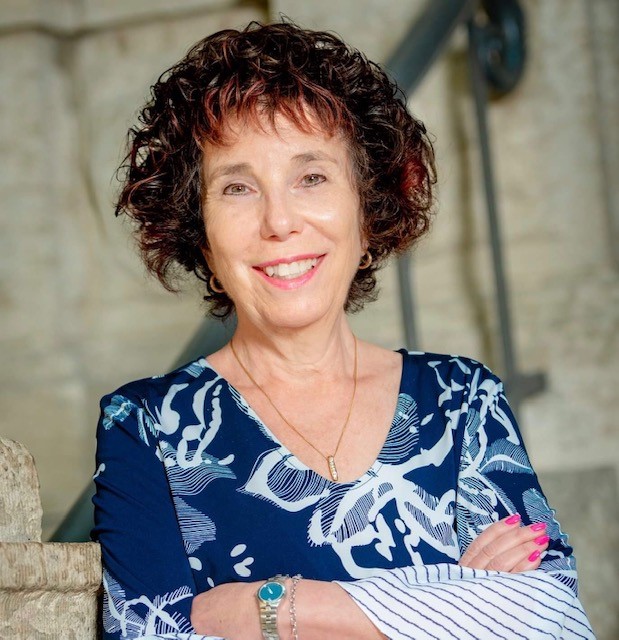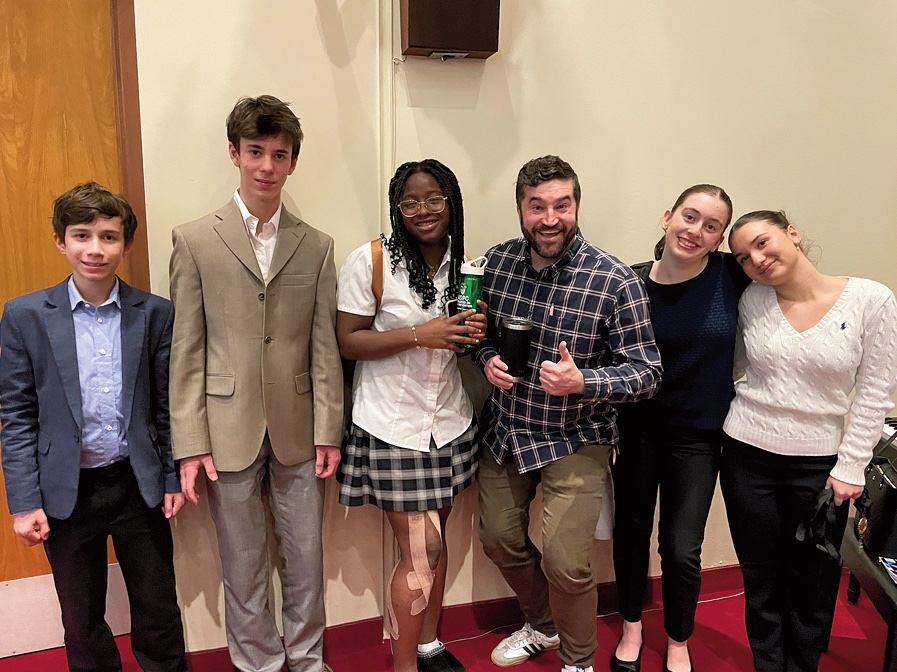Local News
Jewish Child and Family Service stepping up to meet the needs of the neediest members of our community in this extraordinarily difficult time

By BERNIE BELLAN
With the Corona virus enveloping the entire world, and with seniors being among the most vulnerable members of our community, the agency whose mandate it is to provide social services to seniors in our community has been thrust into the role as the primary source of contact for many seniors – and others who rely upon social support.
Rather than being able to provide in person counseling and other services to its clientele, however, the Jewish Child and Family Service is front and centre among Jewish organizations in this city that have had to improvise how it provides its normal services.
According to Al Benarroch, Executive Director of JCFS, various staff members of JCFS have been working strenuously to try and assist in “reducing the social isolation of seniors” and other clients of JCFS who are finding themselves not only psychologically and physically isolated from the community, but often desperately in need of such things as groceries and prescription drugs.
“We’re checking in by phone for sure,” Benarroch said, “and where possible – electronically”, i.e., by computer.
“All of our staff are set up with Zoom, so they’re able to set up virtual appointments that way…With seniors we want to make sure that we’re reducing their sense of isolation. We want to make sure that they have essential services provided to them – particularly food and medications.”
In terms of how many clients JCFS is actually serving at this excruciatingly difficult time, Benarroch explained: “We’re prioritizing those that are at the highest risk for isolation. That would be our elderly. We deal with about 425-450 households in that category alone. We’re talking about 600-800 people. In that group we include our Holocaust survivors, our newcomer seniors; we have many seniors that are living with mental health issues.”
Benarroch added that “We have a lot of mental health clients who live in isolation; many of them are younger and can get out. However, this whole pandemic is going to impact them emotionally – with their anxiety. We’re checking in on them regularly – with those electronic meetings.”
Asked what JCFS is able to do in particular with respect to providing food for shut-ins, Benarroch elaborated, saying that “What we are able to do is help coordinate, make sure that we have food delivered to them. As an example, we had a client this morning who said: ‘I’m more than capable of getting out. I have some mobility issues. I can get to the grocery store through handi-transit, but I need to get home – and they won’t wait.’
“So we were able to coordinate a taxi for them to get back home. We can do this on a case by case basis. In most cases we want to follow all of the protocols in insuring that people stay socially distant, where possible stay at home.
“We have a driver right now who’s taking orders from clients for groceries. We’re placing them on line. We’re arranging pick-up and we’re dropping them off in a no-contact drop off for them, and we’re working out an invoicing system where clients will be invoiced by the agency for reimbursement.
“Certain pharmacies are still delivering, certain grocery stores have actually added delivery as an option. We’re trying to take every precaution to make sure that everyone stays safe, but everyone has what they need.”
Benarroch also cited the JCFS’s child welfare program as another facet of the agency’s mandate to provide specific services that is receiving priority attention: “It’s interesting because it’s a legally mandated service to make sure children are safe in their homes or where they’re living – that is the one program that often requires direct contact. Again though, there are government protocols how you deal with that.”
I asked Benarroch whether “you’re fielding an increase in requests for help from people who ordinarily wouldn’t be contacting you?”
He replied: “It’s too early right now to tell. We’re preparing for it in terms of whether there are more financial needs for people, whether there are more requests for accessing – for getting vital services to them. That’s why we’re one agency that has not laid people off. It’s actually very interesting to see how much we’re able to do remotely. It’s quite amazing.”
Looking ahead, Benarroch predicted that “the clients who are on our caseload are going to be receiving more check-ins than when we did face to face.
“Once we get our Passover hampers out – which is happening over the next two weeks, we’re also planning to have our volunteer coordinators do more. We’re planning on doing more of a community response to isolated seniors so that (while now) they may get one or two calls a week – “at minimum,” he explained, “one call a week from their social worker – we’re hoping that they may get one or more calls a week from the same volunteer. That will be more of a social call: ‘Hi, how are you? Would you like to have a conversation about something in the newspaper? Tell me about when you were younger…’ – things that will keep people engaged.”
Asked whether JCFS has sufficient volunteers at the present time, Benarroch stated that “We’re fielding lots of requests. We have our core volunteers, but I think we’re a very giving community. I’ve been getting lots of requests: ‘What can I give? What can I do? Is there a way I can help?’
“You know, I’ve been fielding four or five emails a day – that’s just me, from individuals saying: ‘Al, is there anything we can do?’ I just got an email from Temple Shalom saying ‘Our congregation wants to do something. What can we do?’”
“The safest thing we can do is have people make phone calls, so we’re starting to coordinate those efforts.”
(Ed. note: A day after I conducted the interview with Al Bennaroch I was contacted by a representative of the Jewish Federation who informed me that the Federation is also now in the process of organizing volunteers who can call isolated members of the community. visit the Federation website.)
At that point in our conversation I digressed into something a little more esoteric, but given Al Benarroch’s own background as an observant Jew, I thought it would be somewhat interesting for him, which was to discuss how you could say kaddish if you aren’t part of a minyan. (For more on this turn to an article on page 20 .)
Benarroch noted that a recent rabbinical ordination came out from some of “the muckety muck Sephardic rabbis in Jerusalem that said for the purposes of the seder you can bring on your elderly loved one remotely – and use the computer – under certain circumstances, so you can Zoom them into a meeting – or use something like Facetime.”
I also noted that I had been emailing with Becky Chisick (executive director of the Gwen Secter Centre) about Meals on Wheels – but that I had discovered it’s quite a bit of a rigmarole to start getting them (at least a two week wait time).
Benarroch responded that “it’s not our program, but I commend Becky for stepping up some of those opportunities to do that,” adding that “Schmoozers is still providing meals. I have seen some people come in to the building and take out.”
Local News
Cheryl Hirsch Katz, Jewish Child and Family Service’s longest serving staffer, set to retire at end of the month

By MYRON LOVE “I loved working at Jewish Child and Family Service,” says Cheryl Hirsh Katz, who is due to retire at the end of June. “I have always appreciated the warm and welcoming atmosphere here. I feel that the people working here are my extended family. I am going to miss my colleagues”.
“I have derived great satisfaction over the years to have been able to help many people in our community of all ages through my work at JCFS,” she continues.
After 44 years at the agency, Katz, the longest-serving member of the staff, was given an appreciative send-off at the JCFS’s recent (June 23) Annual General Meeting at the Shaarey Zedek Synagogue.
The daughter of Art and Bess Hirsh, Cheryl grew up in Garden City. She attended Peretz School, then Jefferson Junior High and Garden City Collegiate. She joined the staff of JCFS in 1981, shortly after receiving her Bachelor of Social Work degree.
She earned an MSW in 1990.
“I chose to become a social worker,” she recalls, “because I always wanted to be able to help people.”
Katz was originally hired by JCFS to work with newcomers. After a couple of years, she was given responsibility for looking after the needs of older adults.
“I really enjoyed working in older adult services,” she says. “That is where I spent the bulk of my time at JCFS.”
After ten years as a case worker, she was promoted to a supervisory role. Later, she was also given responsibility for mental health and addictions programming and settlement services, while keeping the older adult files under her purview.
“As a supervisor, I wasn’t directly involved with individual clients,” she points out. “I was more involved with programming. Among the programs for seniors we organized were – for example – sessions on elder abuse, digital storytelling and memory loss.”
She notes that one of the trends she has seen over the last 44 years is that people are living longer and living in their homes longer. A lot more of our clients are living well into their 90s,” she observes. “We have had to continually expand our staff and the services we provide in order to accommodate the growing demands of an aging population.”
She also spoke of the mental health needs of seniors and aging Holocaust survivors.
She says that she has mixed feelings about leaving JCFS. “After so many years working full time, I am going to have to create a new routine,” she comments.
She notes that, now that she is retired, she will have more time to spend with her parents – who are in their 90s.
And then, there are the two dogs to look after. “I will have time now to try new activities,” she says. “ I might learn to play mah-jong.”
She speaks about maybe doing some traveling – although her husband, Murray, is still working full time.
(She and Murray have one daughter, Farah.)
“Retirement may also include some volunteering,” she adds.
It is quite likely, she will be continuing her association with JCFS but in a volunteer capacity.
Local News
Gray Academy students shine in provincial, national debating competitions

By MYRON LOVE It has been another good year for Gray Academy’s high school students who participated in provincial and national debating competitions. The best results were recorded by Grade 9 student Noa Mednikov, who finished fourth overall nationally, fourth in interpretive reading, and fifth in persuasive speaking at the junior National Public Speaking Championship in early May in Vancouver.
Last October, in the Junior Provincial British Parliamentary Championship – which was held at St. John’s-Ravenscourt – Noa and her partner, Raya Braunstein, finished third as a team while Raya placed third in individual debating.
Their fellow Grade 9 student Maxim Moscalenkov tied for first in persuasive speaking in Vancouver, while the Gray Academy team of Gabe Tapper and Aaron Koplovich finished fifth. Aaron also finished fifth in his individual debate.
Earlier, in March, Maxim finished fifth in the Provincial Juniors debating competition, which was held at Balmoral Hall He and his debate partner, Nate Shenkarow, finished seventh among the teams entered. Last November, he and partner, Ethan Tenenbein, finished seventh in the Junior Prepared Tournament – just behind the Gray Academy team of Nate Shenkarow and Jack Kay.
At the senior high level in that competition, the team of Jacob Tenenbein and Jonah Novoseller finished fourth and Jacob was recognized as fifth best in an individual capacity. Jonah and Jacob also paired up to win the Asper Cup, which was held at their home school.
Jacob represented Manitoba at the Junior National Speech Championship in Vancouver in May and, last October, he and Grade 12 Gray Academy students Julie Krozkin and Daniel Bokser represented Canada at an international debating tournament in Bermuda.
Gray Academy’s debating program was introduced by Linda Martin in 2003. She also led the debating teams at Balmoral Hall. In 2011, Martin was succeeded by Gray Academy high school English teacher Andrew Kaplan.
“Andrew has done a wonderful job with the debating program” says Martin, who has a debating trophy at Gray Academy named in her honour, as well as a provincial trophy for best individual junior debater. “Over the years, Gray Academy students have done very well in many local, national and international competitions,” she adds.
About three weeks ago, this writer had the opportunity to sit down with Andrew Kaplan and six of the school’s top debaters while they discussed the benefits of learning how to debate. According to Noah Strauss – who competed in the Junior Provincials at Balmoral Hall in March, public speaking leaves him with a feeling of accomplishment.
“It’s a good skill set to have,” he observes. “It builds confidence.”
“A benefit of being able to debate is that you learn how to convince people that you know what you are talking about,” adds Maxim Moscolenkov.
Raya Braunstein notes that being able to debate is a skill that she expects to be helpful in many university courses which she may choose to take.
As Andrew Kaplan notes, the ability to express yourself has a great impact in whatever career you choose to pursue.
He points out that debating is compulsory at Gray Academy for all Grade 7 and 8 students – and students can continue debating as an option in the higher grades
Of course, competitive debating is not for everyone. For those students who opt to take that path, the journey begins with internal school debate competition – with the top debating teams and individuals qualifying for local tournaments and – potentially – beyond.
Andrew Kaplan reports that a small number of high schools in Winnipeg and southern Manitoba have active debating programs – including St. Johns Ravenscourt, St. Paul’s High School, St. Mary’s Academy, Garden City and Maples Collegiates in the Seven Oaks School Division, St. Maurice (a Catholic School), as well as Morden Collegiate and Dasmesh, a Sikh private school.
Kaplan expresses his appreciation to the Asper Foundation and an endowment spearheaded by the Kives Family for providing funding for the Gray Academy debating program – as well as the Andrew Slough Foundation – which was established by his friends in memory of the outstanding former Ravenscourt student debater and lawyer who passed away suddenly two years ago at the still young age of 38.
I am confident that our Jewish community can look forward to the continued success of Gray Academy’s star debaters and to the continual emergence of future stars as the times goes by.
Local News
Antisemitism has crept into grade school in Canada

Antisemitism in Canada has moved beyond protests and politics; it is now entering classrooms and altering how Jewish children see themselves functioning within them.
A a university student I have observed the experience of my younger brother in grade eight as a Jewish student. Over the past few months, his school has been at the center of several deeply troubling incidents that have made him feel unsafe in our parks, community, and even his school. Swastikas were drawn around the community, in parks and ponds. Additionally, an older man, who claims to be a pro-Palestinian influencer, stood outside his predominantly Jewish school wearing a keffiyeh, filming a video which then circulated between students on TikTok.
This same man later showed up to our local Jewish community center in keffiyeh to allegedly watch his son play basketball where my brother and many of his classmates go for their lessons, basketball games, and Jewish events. These moments made him and his peers feel watched and targeted just for being Jewish. Local political representatives condemned the incidents and raised awareness about antisemitism, but the fear among students didn’t go away. The feeling of being targeted for simply existing has been taught to my brother, something my parents had tried their hardest to escape from.
Most recently, my brother was chosen to represent his school at a regional science fair. When one of the judges arrived wearing a keffiyeh, he froze. For many, including my brother after the incidents he has faced, the keffiyeh represents a political message. But even more so for my younger brother, it is tied to the fear and intimidation he had already experienced. He felt nervous, distracted, and unsure of how to act.
This is not about silencing political expression. It is about a child who came to share his ideas and left feeling uncertain and afraid. It is about the atmosphere forming in Canadian schools, where Jewish students are being made to feel targeted and unwelcome.
His school made an effort to address the incidents, but the impact is lasting. Posts on social media, much can be very vague at times about inclusion cannot fully undo the feeling of being singled out. A kind word from a teacher does not erase the fear that builds when threats are left unspoken but deeply felt.
I am writing this as a sister who watched her younger brother lose a moment that should have been filled with confidence and pride. He deserved to feel safe. So do all Jewish students in this country.
Moving forward, schools must take concrete steps to protect all students. Antisemitism cannot only be addressed when it becomes violent or overt. It must also be recognized when it appears as intimidation, symbolic targeting, or political messaging that creates fear among students. Children should never have to question whether they are safe in their own classrooms or community spaces.
Events that are meant to support and celebrate students must remain focused on them. Individuals who feel the need to bring political symbols or messages into school grounds or children’s events should not be welcomed in those spaces. Schools must make it clear that their environments exist to support learning, safety, and inclusion, not to host agendas that can intimidate or isolate students.
Administrators and educators must develop clear guidelines for identifying and responding to antisemitic behavior in all its forms. This includes strengthening security measures, offering ongoing staff training, and engaging directly with Jewish families to understand their concerns. Inclusion is not a one-time statement. It is a responsibility that must be reflected in everyday decisions and actions. No child should ever feel unsafe or unwelcome because of their identity.
The author is a Campus Media Fellow with HonestReporting Canada and Allied Voices for Israel who lives in Toronto.
